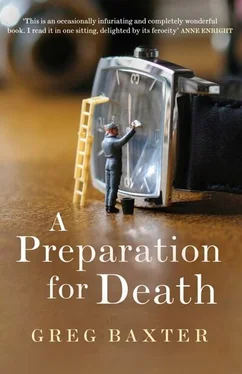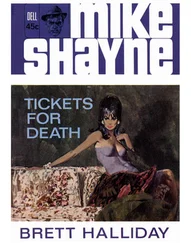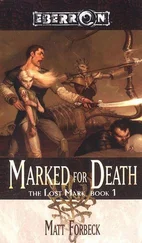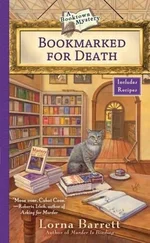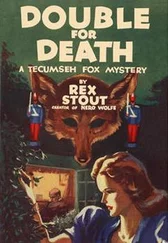The second time we went, four years later, she would get lost quite easily and panic. She talked a lot about how she couldn’t remember her German, or the names of her favourite places, or where they were. I became the guide. I was living as an exchange student in Würzburg, Germany, at the time, old enough to go to bars with Walter and Michael and smoke hash in cars on the way to raves. I spent hardly any time with her, just hungover lunches before the drinking began again. By then, however, she was glad of all that. It turned out she thought boys who behaved themselves were abominations.
Before we travelled to Vienna that second time, she had come to visit me in Würzburg. I showed her the city and the university. She stayed in a pension near my dorm, and there we discussed her life in earnest. She knew her memory was going. I introduced her to my friends, many of the beautiful girls who lived in my dorm. When I introduced her to the girl I was dating, she was polite but aloof. Later, she told me it was no good to have one girlfriend: I must have them all. It is in contemplating this remark, now, sitting at my dining-room table, beside the photograph, that I sense what kind of man Herbert may have been.
Elísabet tells me she can see Maria in our house, sitting beside me at the table, waiting patiently for her story to come to something. How I wish this were the case, that I had within me the capacity to do her life justice. Elísabet’s mind creates: it is astounding to watch. Sometimes she will have a thought and start quietly dancing. She believes the world is always telling truths, and she listens. A mountain told her to write a play about her father. An American football game told her to finish a book. She is always going for coffees with people she meets on the Dart. She finds boring people inspiring. Since men are inherently dull, she turns them into obsessions. She could fall in love with a peanut. It is as though someone built a weird machine designed to debunk monotony. She is like a child playing hide-and-seek with her own thoughts. Once, I saw her outside the house and she began to clap and shouted from a long way off, Hey! We are in Ireland !
When I first arrived, I experienced such moments. They would arise for no reason, in unspecial settings, in the middle of daily routines. The feeling has no light or shape or colour, only, for a moment, a temperature. By the time you have named it, you have forgotten it. The imposition of a word is the act of forgetting. A man who wishes to transfer his experience to the page might as well try to throw a typewriter at the moon.
My life is the opposite of an adventure. In this I am like almost everybody, except I will not struggle in the grip of delusion. I will remain very still, its hold will relax, and I will slip out. Maria always wanted me to return to Vienna. It was she who inspired me to live in Germany for a year, where I met an Irish woman who would introduce me to the woman I would marry. Maybe one evening I’ll arrive in Vienna unannounced. I will find a small flat just outside the Ring — something I can afford for a little while — with a view of nothing much. I will go grocery shopping and read books; with diminishing impact I will live out the resurrection of a dead history.
4. Health. Success. Children Every Year. Die in Ireland. (A Toast)
Just the other morning, the cold came back. It had struck the city for a week in October, but it left like a disinterested ghost. The sky was floating very low above the houses, and blue, and the streets had been licked by a little rain in the night. I stood on my terrace for half an hour, up early, drinking a few glasses of water. The Belfast train shot through a gap in the estate, which is still under construction; lit on the inside, bleared in its velocity, a whir of violet and grinding.
The first day of winter, not by date but in essence, the first day you realize you are not waiting, but in it : the sun slowly drained the blue off; the sky became the colour of whalebone. Or the colour I imagine whalebone to be: it reminded me of the sea — hulking, low, wet, and bodily. I went downstairs to leave for work. I unlocked my Vespa from the concrete column that holds up the front of my house. I bundled up: rain gear, scarf, headphones, helmet, gloves — summer gloves — still wet from the day before. The first flights of the day were descending over the estate from the east, in from the sea. When the clouds are especially low, the jets materialize above the coastline, which is less than a mile from me. The sound they make is like a little avalanche, or one that is huge but very far away. It is an elemental image of my twenties, a time when my life consisted of elemental images, when almost every year I moved to a new country: descending through cloud, as though gobbled up in the whale’s mouth, the sudden disappearance of pure light, shot through the crystal of pure atmosphere, a minute of turbulent blindness, through the gut, then excrementally dropped into the weak-lit air above the city, moving, wet, matchbox: Vienna, Frankfurt, London, Dublin, Chicago, and the little cities I lived in between them.
The scooter woke up the sleepy street. A woman packing child accessories into her car stopped to glance in my direction. I gave a little wave and she responded with a smile.
Life on my Vespa is precarious. I have a problem with a ball bearing, or so I have been told — I have no idea. My front wheel wobbles at slow speeds, and badly on slick surfaces. I hold the handlebars like a bad tightrope walker holds a balancing stick, weaving between jammed lanes, trying to avoid wing mirrors.
It is almost December, and the city centre has been lit up for Christmas; the lights and decorations are strung from buildingtop to buildingtop, and in the dark evenings they reanimate the twinkling sense of childhood gaiety, except drunk and spending money: snowflakes on George’s Street, bells and angels, Nollaig Shona Dhuit in lights, over and over, on Henry Street, and giant new chandeliers on Grafton Street. The journey from my door to the door of my office lasts thirty minutes, though I have, through the great denying power of the mind, convinced myself it takes twenty, so I am always late. It means nothing, since I take a coffee break immediately, and since, if I do any work at all before lunch, it is only to write my own things, and email Katie, a strange, erratic and lonely 24-year-old Welsh girl with an athletic body and tattoos. Only on Mondays, when we go to press, do I heave a little effort toward the paper.
When I am sent to daytime conferences, I tend to pay them short and angry visits. Afterwards, I take my Vespa all around the city, listening to loud music. Once I drove out to Sandycove Strand and sat on a bench with a book, bundled up tightly, and looked out to the sea, but I felt like an idiot. A few times I have parked at Dun Laoghaire pier, and thought of walking it, to stare in the direction of where I live across the grey width of the bay. But I am not that kind of person, as much as my old self wanted me to be. Now, I like to whiz around Stephen’s Green and soak in the sight of good-looking women, and I like to drive around hardscrabble portions of the city, stop on footpaths and smoke cigarettes, observing people pushing buggies around without babies in them.
My weeknight dinners are always the same — a tuna sandwich with mustard on brown bread at the Centra on Parnell Street, thirty minutes before class begins. I have been eating the same sandwich every Monday through Thursday for months, and always order from the same woman, though she never gives any sign of recognizing me. I eat, standing, at one of two tall tables that are also rubbish bins, and people throw their trash away under my elbows. The television high in the corner is tuned to Sky News , which I watch inattentively, because there is no sound out of it.
Читать дальше
